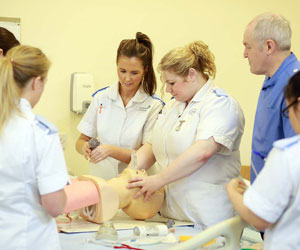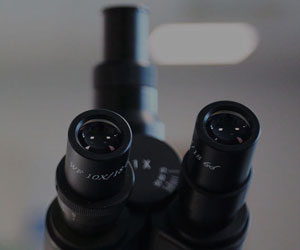Course outline
Course summary
The modules on this course give you the necessary skills to deal with the continual changes to practice in the evolving field of emergency and pre-hospital care. You can bring the credits you earn from this course towards a top-up degree in BSc (Hons) Nursing Practice or BSc (Hons) Practice Development to further enhance our skills.
Module
Year One
Any of the modules can be studied in Year 1 dependant on the start date of study. Consultation and physical examination skills module - starts in September Minor illness and injury has a September and a January start date Major Illness and Major trauma - only runs in April
Timetable
For the UAD: Emergency Care: Practice Development, you will be required to undertake the following core modules:
Consultation and Physical Examination: Health Assessment Skills (20 credits) Care of Minor illness and Minor injuries (20 credits) Management of Acute Illness and Major trauma (20 credits The
Consultation and Physical examination skills module run over 2 semesters has the choice of face to face delivery on the Lancaster campus or purely online/distance learning. The Consultation and Physical examination skills module requires you to be deemed competent in the physical examinations and you will need to have access to a relevant clinical area in order to practise and achieve these competencies
Programme Specification
Assessment, Feedback, and Teaching and Learning methods
Timetables
Entry requirements
Entry Requirements
1st or 2nd class honours degree.
Admission criteria are outlined in the University Admissions Policy. Normally applicants will be required to hold an honours degree classification second-class honours, lower division or above in a related subject. For applicants who do not meet this requirement, non-standard entry criteria will apply. In such cases, applicants will be interviewed. This decision will be at the discretion of the programme leader.
It is expected that such candidates will have evidence of successful study at level 6 (or equivalent) within the preceding 5 years. Applications will be reviewed on an individual basis. Potential students will be offered advice by an academic tutor on the suitability of the award and their module choices, this will be dependent on factors such as currency of prior learning, and their personal and professional development needs. Students should be able to show the potential benefits of studying for the award and offer a rationale for their module choice.
All applicants must be a registered healthcare professional.
Selection criteria
Applications will be reviewed on an individual basis and potential students will be offered advice by an academic tutor on the suitability of the award and their module choice within the award, dependent on factors such as recency of prior learning, and their personal and professional development needs. Students should be able to show potential benefit from studying for the award and a commitment to attempting the assessment items. Students who do not have evidence of recent successful study at level 5 will be advised to complete an online study skills package prior to commencing any modules.






